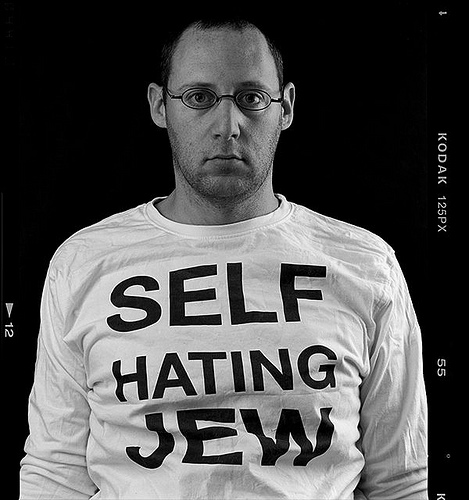...One of the illusions of our times, an understandable case of wishful thinking, is that the horrors of the Holocaust rattled Western culture enough to pave the way to an eventual end to Jew-hatred. Sectors of Western society were indeed rattled (including the Church), but a few decades of soul-searching have not proved sufficient to erase a millennia-old component of the Western spiritual heritage. Like a chameleon, Judeophobia has changed colors and leitmotifs over the centuries, and it continues to do so. Today, before our eyes, it is reformulating itself into anti-Israelism. Although anchored in the broad ideological spectrum of Western society, much of the ideological impulse of Jew-hatred in the nineteenth and twentieth centuries came from the political right and nationalist circles. At present, the main impulse of the new Judeophobia comes from the political left.
...The left, for ideological reasons of its own, is straining to find areas of understanding and collaboration with the Islamic camp. The problem is that the fundamental values of the two sides are incompatible. Leftists and Islamists disagree on secularism, human rights, separation between state and religion, equality for women, and more. However, there is one issue on which the two sides are in accord: they both oppose the Jewish state. For Western leftists, it is a case of the old Judeophobic itch again making itself felt, unconsciously or even consciously, under new mottos. It is not so much the Jews, nowadays, but the Jewish state that is in leftist sights....
Regarding...the Israeli-Palestinian conflict:... “Imagine a film of a boxing match that is cut lengthwise, so we can only see the movements of one of the fighters ...What do we think we are seeing? A nut whose behavior defies all common sense.” ...The aims on the Arab side, the intentions of Hamas and of Hezbollah, the threats of Iran, the fact that in the century-old history of the conflict there has not been a single case of a whole-hearted Arab initiative to reach an understanding – all this is cut from [the] narrative. About Arab behavior in conflicts among themselves (or with non-Muslims), there is similarly not a word. ...one finds only bad Israelis burdening the region with their bad intentions.

...In that broad range of positions [amongst Jews], running from ultra-Orthodoxy to almost total integration into the non-Jewish world, many anti-Zionist Jews ...are thoroughly immersed in Western life and culture. Their critics frequently excoriate them as self-hating Jews, a view that is simplistic and inexact: most of them are quite normal persons as long as Zionism is not mentioned. ...they frequently collaborate with anti-Israel non-Jews, they do not oppose other Jews in the sense that classical antisemites do. Although critical of Israel and Israeli society, several of them live very well in Israel.
A large part of modern Jewry was touched by the Jewish spark, the dream of shivat tsion (the Return), and finds an emotional and conceptual anchor in the new Jewish reality of Israel even if they do not live there. Strangely enough, anti-Zionist Jewish intellectuals were also affected by the Zionist spark – but negatively. Their deeply emotional aversion to Zionism suggests a personal dimension, but that is beyond my expertise as a historian.
Anti-Zionist Jews concentrate primarily on one theme, the Israel-Palestinian conflict... The fact that Muslims have a misguided understanding of the connection of the Jews to Palestine is a major reason for their consistent failure to cope with what has become a major political and ideological problem for them.
I have not met a single Muslim intellectual who did not repeat the canard that “antisemitism caused Zionism,” the inevitable corollary being: “The persecution of the Jews in Europe was a terrible thing. But why do the poor Palestinians have to pay for it?” Jewish intellectuals who support this approach bestow weight onto an ideological misconstruction, the ultimate effect of which is to perpetuate the conflict between Israel and the Arabs.
...Unlike the prophets of old (or the anti-Zionists of the early twentieth-century), these Jewish critics do not sermonize “inside” but “outside”: they preach to non-Jews. Jewish anti-Zionism was once an internal dispute, with Jews debating Jews. Contemporary Jewish anti-Zionism and anti-Israelism is mostly an external affair, with Jews addressing non-Jews, many of them Jew-haters. And those Jews say exactly what many of their non-Jewish listeners want to hear, giving the whole exchange a surreal dimension...
We live in a time when classical Judeophobia, in the new garb of anti-Israelism, is spreading. Encumbering the search for a solution to the conflict between Israel and the Palestinians is a political and ideological confrontation between most of world Jewry and the Muslims. There is no reason on earth not to believe the Iranian ayatollahs, or any other Islamists, when they declare repeatedly that their aim is to destroy the Jewish state, and that they will do their best to achieve that goal. And they are openly supported by Judeophobic sectors of Western society.
Obviously, it is absolutely legitimate to criticize this or that aspect of Israeli life and politics. Every newspaper in Israel does it every day. To call for the destruction of the Jewish state is something else: it is Judeophobia in contemporary dress. To collaborate with parties, states, or people who support such plans, as many Jewish anti-Zionists do, is sheer irresponsibility...
The “anti”-positions of anti-Zionist Jews provide them with a platform, but one does not find in their utterances an anchor in matters Jewish. Their trumpets are shrill but their analyses are incorrect, and over their message hangs a cloud of hopelessness. A bit more modesty and a dose of reflection may, hopefully, bring these anti-Zionist Jews to a better and more balanced understanding of modern Jewish history and actual Jewish realities.

No comments:
Post a Comment